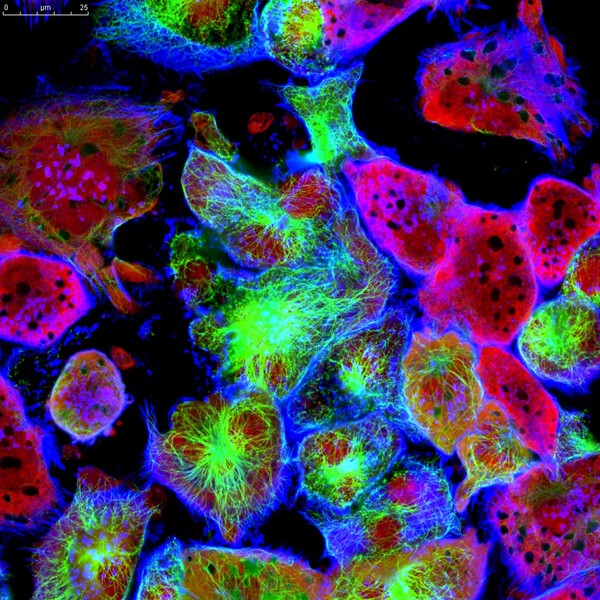Georgia Tech inventors have developed a method to simultaneously analyze a large number of cell properties in a biomimetic three-dimensional micro-environment with minimal disruption of cell-cell and cell-material interactions. The high-throughput assay system allows for very high number of replicates measured within a few seconds using already established, and widely available, instrumentation. The developed method utilizes shape and size-specific microgels as model three-dimensional cell niches and combines microgel shape with size and fluorescence, as a novel multiplexing variable in flow cytometry. The addition of shape and size as multiplexing variables is important because fluorescence alone gives very little multiplexing capability compared to hundreds of parameters that can be evaluated using the described technology. Current approaches in evaluating cell-material interactions require the seeding of cells on or in an array of polymers deposited on a glass slide, which is difficult to analyze quickly and is restricted to the examination of fewer parameters and very few replicates.
- Enables the evaluation of cell properties in a biomimetic three-dimensional microenvironment
- Mnimal disruption of cell-cell and cell-material interactions
- Multiplies the number of variables that can be analyzed without significantly increasing the time of analysis
- Increases the statistical confidence level of acquired data
- Utilizes widely available instrumentation
- Enhance cellular research
- Cancer research
There is a critical need in cancer research to develop high-throughput screening systems to evaluate cellular behavior and interaction of various therapeutics within the cells’ micro-environment. A robust fabrication method is needed to generate thousands of replicates of complex tumor niches, develop flow cytometry-based, non-destructive assays for these niches, and implement new approaches to significantly increase the degree of multiplexing for currently available flow cytometry methods.

